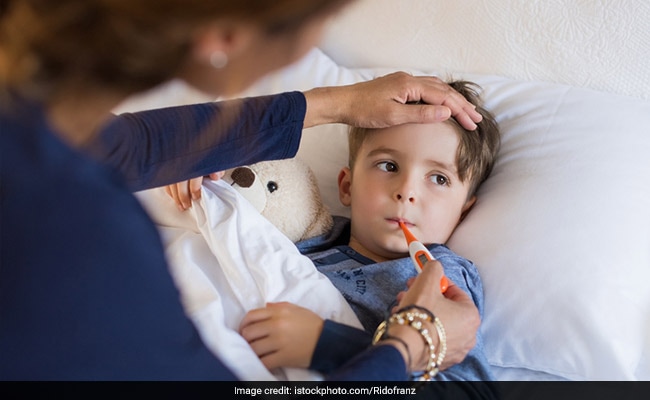
- The number of rubella infections is rising in India
- Rubella infection is transmitted from a pregnant woman to foetus
- Congenital rubella syndrome can cause deafness and heart defects
The number of rubella infections is rising in India. Rubella infection is transmitted from a pregnant woman to foetus, thus resulting in babies born with various diseases. It is a contagious, but generally mild viral infection which usually occurs in children and young adults. Congenital rubella syndrome is a condition which can cause deafness, heart defects, mental retardation and cataract in newborn babies. A surveillance was conducted by the health ministry on 150 babies for screening rubella syndrome. 50 of these babies were screened with congenital rubella syndrome and birth defects. The foetus gets infected within the first 3 months of pregnancy.
What is congenital rubella syndrome?
Congenital rubella syndrome is one of the leading causes of birth defects, but is vaccine preventable. Pregnant women infected with rubella infection are at risk of foetal death or congenital defects - which is known as congenital rubella syndrome. Rubella is spread in airborne droplets when the ones who are infected by it sneeze or cough. Once a person is infected by rubella, the virus spreads throughout the body in around five to seven days.
Also read: Are Rising Temperatures Responsible For Increased Childhood Viral Infections?
There is no specific treatment for rubella, the disease is preventable by vaccination.
Symptoms of rubella infection include mild fever, rashes and illness in children. Pregnant women infected by rubella vaccine are at risks of miscarriage, foetal death and stillbirth. Infants are at risk of congenital birth defects - known as congenital rubella syndrome.

Congenital Rubella Syndrome can increase risks of stillbirth and miscarriage
Photo Credit: iStock
Also read: 4 Reasons Why Your Newborn Isn't Sleeping At Night
These children are also likely to suffer from hearing impairments and defects in eye and heart. They are likely to suffer from lifelong disabilities like diabetes mellitus, thyroid dysfunction and autism.
Most serious consequences of rubella infections can be acquired during the first trimester during pregnancy. Women can get their measles rubella vaccine even during their menstrual cycle. People at high risk of rubella infections are non-immunised young adults. Before the vaccine was available until 1969, rubella epidemics happened every 6 to 9 years in kids from 5 to 9 years of age. Cases of congenital rubella syndrome were also widespread.
Also read: Salmonella Infection: Here's Everything You Should Know About It
Congenital Rubella Syndrome in India
30,000 cases of congenital rubella syndrome have been estimated in India every year. The measles rubella vaccination drives have been completed in 20 states and union territories of India. Campaigns for spreading awareness about the vaccine are still carried on in 6 states. 11.85 crore children have been safely vaccinated in 26 states and union territories so far.
Disclaimer: This content including advice provides generic information only. It is in no way a substitute for qualified medical opinion. Always consult a specialist or your own doctor for more information. NDTV does not claim responsibility for this information.
Track Latest News Live on NDTV.com and get news updates from India and around the world

